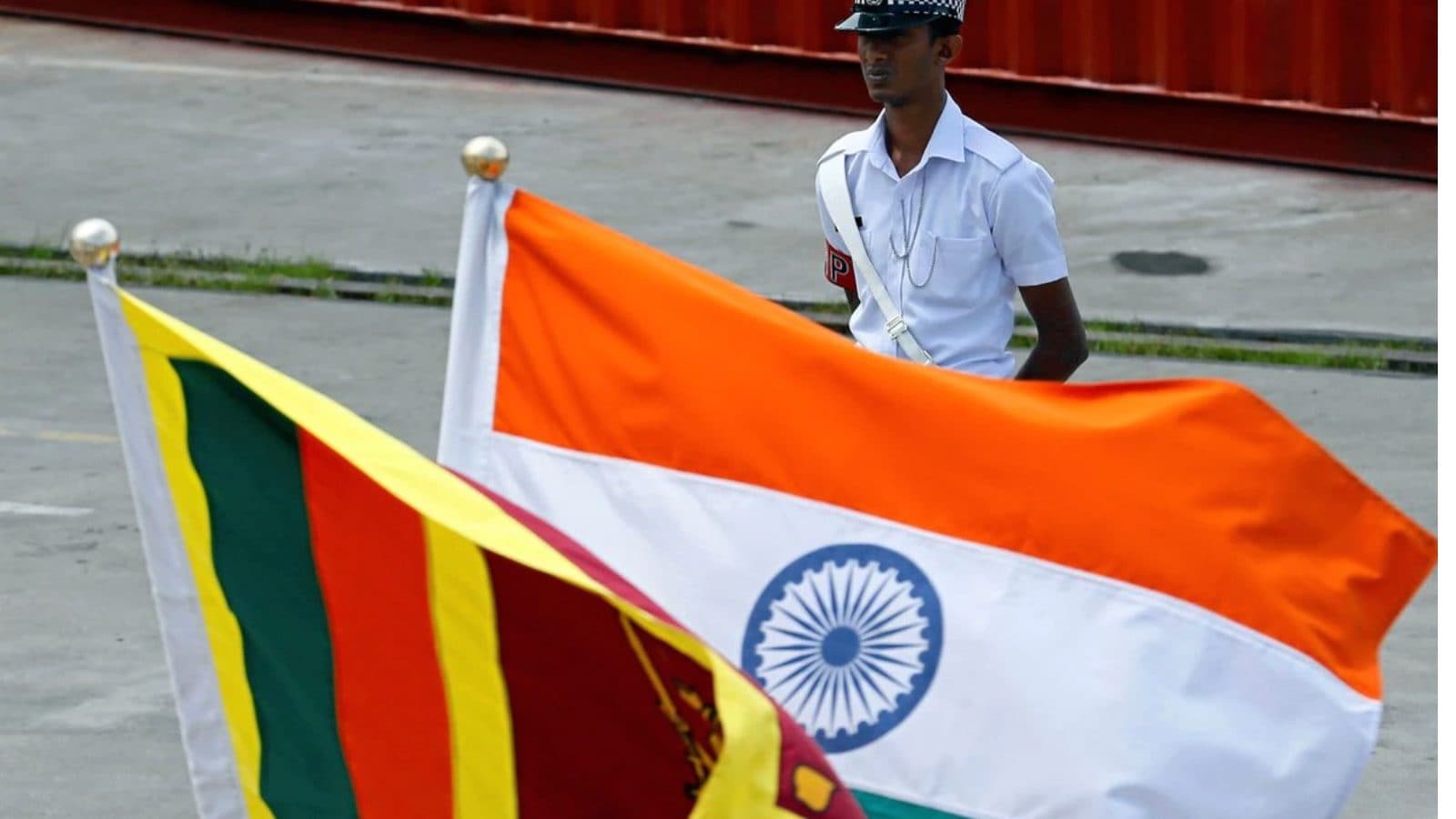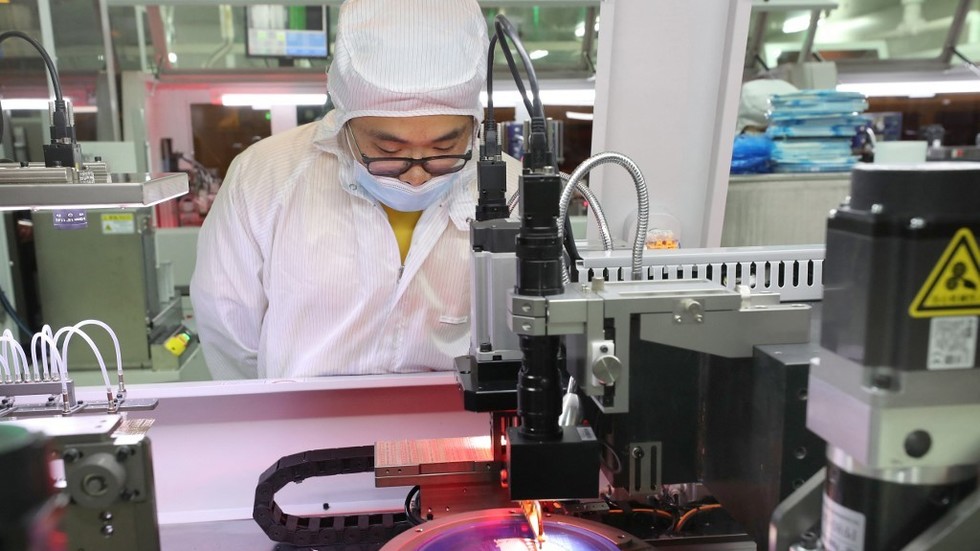[ad_1]
Sri Lanka wants all its collectors to come back collectively and provides it some respiration area
Sri Lanka wants all its collectors to come back collectively and provides it some respiration area
On July 20, performing President Ranil Wickremesinghe was elected the President of Sri Lanka. The Authorities of India, which held an all-party assembly on the disaster within the island nation, stated that “fiscal prudence and accountable governance” are the teachings to be learnt from the state of affairs in Sri Lanka and that there shouldn’t be a “tradition of freebies”. India promised to be supportive of Sri Lanka, which is struggling to cope with the devastation attributable to the financial disaster. In such a state of affairs, what should the world, and India particularly, do to assist Sri Lanka? Nirupama Rao and D. Subbarao focus on the query in a dialog moderated by Suhasini Haidar. Edited excerpts:
How predictable was the disaster that got here to a head in April 2022 with the protests, and the way a lot of the blame lies with the Rajapaksas who’ve now been pushed out of energy?
Nirupama Rao: On the finish of the civil struggle [with the Liberation Tigers of Tamil Eelam] in 2009, Sri Lanka needed to go to the IMF (Worldwide Financial Fund) for help. Successive governments could be charged with financial mismanagement — fiscal and budgetary — however you may implicate the Gotabaya Rajapaksa presidency with a whole lot of missteps that led the nation to the place it’s now, staring over the financial precipice. What you see now is an ideal storm — financial mismanagement through the years and political malfeasance, which you’ll be able to lay on the door of the Rajapaksas.
Remark | Serving to Sri Lanka extra meaningfully
D. Subbarao: The disaster is a consequence of the dual deficit drawback: an unsustainable present account deficit and an unsustainable fiscal deficit, a few of which they [the Rajapaksas] weren’t liable for. Tourism collapsed beginning with the Easter bombings, then the pandemic, and remittances from migrant employees declined, once more due to the pandemic. The import invoice rose due to the struggle on Ukraine and the spike in oil costs.
On the home entrance, nonetheless, the fiscal disaster is totally home-made. The Rajapaksa authorities gave in to unaffordable populism by slicing taxes. They minimize the worth added tax by half, eradicated capital positive factors tax, made expenditure commitments on subsidies that they couldn’t afford, and so debt ballooned. The Rajapaksa authorities was liable for three particular issues: one, unaffordable populism; two, erratic financial administration — for instance, the abrupt shift to natural farming; and three, it didn’t go to the IMF early sufficient. If it had approached the IMF, say, six months in the past, the disaster wouldn’t have been as intense.
Do you suppose international powers may have moved in sooner to try to assist at the very least with the debt reimbursement deferrals somewhat than await the disaster to have reached the extent it has?
D. Subbarao: Sri Lanka’s disaster was so deep that no nation by itself may have averted it. And if a rustic had moved in by itself to unravel the issue, it could have taken on extra burden with out really fixing the disaster. A disaster like this requires IMF help, and for different international locations to come back on board in help of the IMF programme. Take, for instance, bilateral debt that Sri Lanka owes to international locations similar to Japan, China, India. For these international locations to scale back or restructure their debt, they’ll require an IMF programme. So, what international locations can do bilaterally is present a bridge mortgage, which is what India has achieved, however the structured answer has to come back by the IMF.
Remark | ‘Benefit New Delhi’ in Sri Lanka’s India lifeline
Nirupama Rao: What precipitated the disaster was the massive tax vacation that Mr. Gotabaya Rajapaksa gave quickly after he assumed workplace. The steadiness of funds suffered a large amount of strain, particularly on Sri Lanka’s foreign money, after COVID. They need to have allowed the foreign money to depreciate, however they spent $5 billion to $6 billion of treasured international alternate to maintain the foreign money afloat. The recommendation by the governor of the central financial institution was a mixture of hubris and incompetence and unwillingness to go to the IMF. The President knew nothing in regards to the economic system. They adopted nationalist financial insurance policies. They saved borrowing from the business market. They weren’t in search of any help from the IMF. In truth, they got here to India on the finish of final yr, asking India to reschedule the debt reimbursement. We had a portfolio of debt of beneath $1 billion. We questioned why they had been coming to us; it was a well-managed portfolio. However they stated India is a crucial accomplice and that’s why they had been coming right here. India’s assist has been unprecedented. No different nation has actually come to Sri Lanka’s rescue.
Do you suppose India’s help to Sri Lanka of about $3.8 billion was enough and well timed? How do you consider China’s position, which owns at the very least 10% of Sri Lankan debt?
D. Subbarao: The Indian Authorities by itself can not clear up Sri Lanka’s drawback. Sri Lanka wants all people who it owes debt to — the IMF, the World Financial institution, the ADB (Asian Improvement Financial institution) and all different companions — to come back collectively and provides it some respiration area. That’s what India tried to supply. India couldn’t have restructured all its loans or given all the cash that Sri Lanka needed. India gave help on time and in adequate amount for Sri Lanka to get some respiration area with a purpose to strategy the IMF and attain an association with the IMF.
In Focus podcast | What does Ranil Wickremesinghe’s election as President imply for Sri Lanka?
On China’s involvement, Sri Lanka’s debt drawback has two egregious sins. One is over-dependence on one nation for a bilateral accomplice, China. The second is the sovereign borrowing in a international foreign money. On condition that many of those loans went into infrastructure initiatives which have taken too lengthy or have been underutilised, debt has piled up, however there aren’t any revenues to repay for it. To that extent, China is liable for loading on debt, irresponsible lending, and now liable for not coming quickly sufficient to Sri Lanka’s help.
Nirupama Rao: India’s assist has been unprecedented — different international locations have give you very small quantities of humanitarian help on the very most. It’s possible you’ll argue that international locations like Japan may do extra. However for those who see the document of the Rajapaksa authorities, it was very cavalier and churlish in its therapy of Japan over the previous couple of years, by cancelling initiatives. Japan has each purpose to be upset about the best way the connection with Sri Lanka has developed over the previous couple of years.
Additionally learn | Sri Lanka failed to point out fiscal prudence, India’s assist unprecedented: Jaishankar
You talked about 10% of Sri Lanka’s debt being held by China, however that determine is unassuming. There’s rather more hidden debt held by Chinese language entities. In the meantime, returns on Chinese language initiatives haven’t added a lot worth to the economic system. The 99-year lease of the Hambantota Port was concluded with out settling the loans owed to China, and now they’re incurring recurring expenditure for operating the port. So, that has been a white elephant. The Chinese language need extra management in Sri Lanka, they need an FTA (Free Commerce Settlement), however Chinese language items already flood the market.
Are there different options to the IMF that India must be tapping or serving to Sri Lanka to faucet? Ought to India now be wanting to make use of its personal assets in a regional vogue and may India even do this?
D. Subbarao: Properly, we’ve been scuffling with this query for the final 25 years. Nations world wide have been looking for an alternative choice to the IMF, due to the priority that IMF conditionality is simply too harsh and doesn’t lead to long-term structural adjustment. However nothing has proved to be an enough substitute for the IMF — neither bilateral preparations nor the regional ones. The actual fact is that if a rustic is beneath an IMF programme, exterior traders, exterior collectors turn into assured that they’ll return into the nation. And that’s why I hold saying that Sri Lanka ought to have gone to the IMF sooner in order that that confidence ranges wouldn’t have sunk.
Janatha Aragalaya | The motion that booted out the Rajapaksas
Nirupama Rao: Sri Lanka has to go to the IMF, however even that has issues. Finance Minister Nirmala Sitharaman made a powerful case for Sri Lanka to be labeled quickly as a low-income nation in order that it could actually get help on a extra emergency foundation from the IMF and on the strains of what has been supplied to Ukraine. However that has not occurred. Sri Lanka has not been capable of attain a staff-level settlement with the IMF. It has to legislate choices on the taxation and income aspect, however it isn’t capable of transfer in Parliament on that entrance, given the political disaster. Even the basic evaluation of debt sustainability has not been reached with the IMF.
What’s worrying is that [in this crisis], a fertile floor may very well be supplied for extremist ideologies. The capability of the nation to make sure its maritime safety may also endure and there’s a state of affairs of medication and arms smuggling staring us within the face. India has to contemplate how far it could actually go to assist Sri Lanka; I don’t know if the federal government has taken that call but. However we should do not forget that financial and safety components are interlinked. Possibly the thrust in India must be to take a look at extra regionalising components in relation to commerce and whether or not regionalisation of the Indian rupee could be of assist to us and our neighbours.
Additionally learn | Guarantee peaceable transition of energy in full respect for Structure in Sri Lanka: United Nations
To what extent is the state of affairs in Sri Lanka akin to that in Indian States, if not the complete economic system? Exterior Affairs Minister S. Jaishankar’s presentation to parliamentarians appeared to point fear a few “spillover” impact.
D. Subbarao: The actual fact is fiscal profligacy and monetary irresponsibility will invariably finish in tears. Some Indian States are borrowing cash and utilizing it on freebies, which don’t add to productiveness or future financial exercise or manufacturing capability, however add to present consumption. So, they don’t help long-term development. However past that, States in India can’t be in comparison with Sri Lanka as a result of Sri Lanka is an impartial financial entity whereas the States in India are a part of a nationwide financial entity. States in India don’t have their very own steadiness of funds, they don’t have debt denominated in exterior foreign money like Sri Lanka. Second, Sri Lanka can cope with home debt by printing foreign money, because it did, however States in India can not do this. So, it’s vital for us, because the Prime Minister stated, to get this into public dialog about whether or not States and even the Centre ought to proceed to spend cash like this on switch funds and freebies as a substitute of spending on infrastructure that helps long-term development and employment era. I don’t consider the Centre and the States ought to speak about these choices in an adversarial method, however agree on some norms. The Supreme Court docket has additionally stated there have to be some norms about how a lot could be spent on freebies. Politicians may take umbrage, however we should get it proper.
Additionally learn | India assures Sri Lanka continued help to democracy, stability and financial restoration
Equally, the troubles come from not simply India however the remainder of the neighbourhood. How can India put together for crises in the remainder of South Asia?
D. Subbarao: Lots has been written in regards to the financial disaster dealing with Pakistan and Nepal. We must be wanting laborious at Nepal as a result of Nepal is tied to us in some ways. However one redeeming issue is that Nepal’s foreign money is pegged to ours and its commerce being landlocked, it’s utterly depending on India. The problem of regionalisation of the Indian rupee must be checked out extra intently. If we apply the regionalisation of our rupee, make it doable for us to commerce in rupees with Sri Lanka, it should assist Sri Lanka save on laborious foreign money. The digital interface funds that we’ve got, like BHIM, can be utilized in international locations within the neighbourhood similar to Nepal and Bhutan. With Sri Lanka, these discussions haven’t been capable of go ahead.
D. Subbarao is former Governor of the Reserve Financial institution of India; Nirupama Rao is former Overseas Secretary
[ad_2]
Source link





